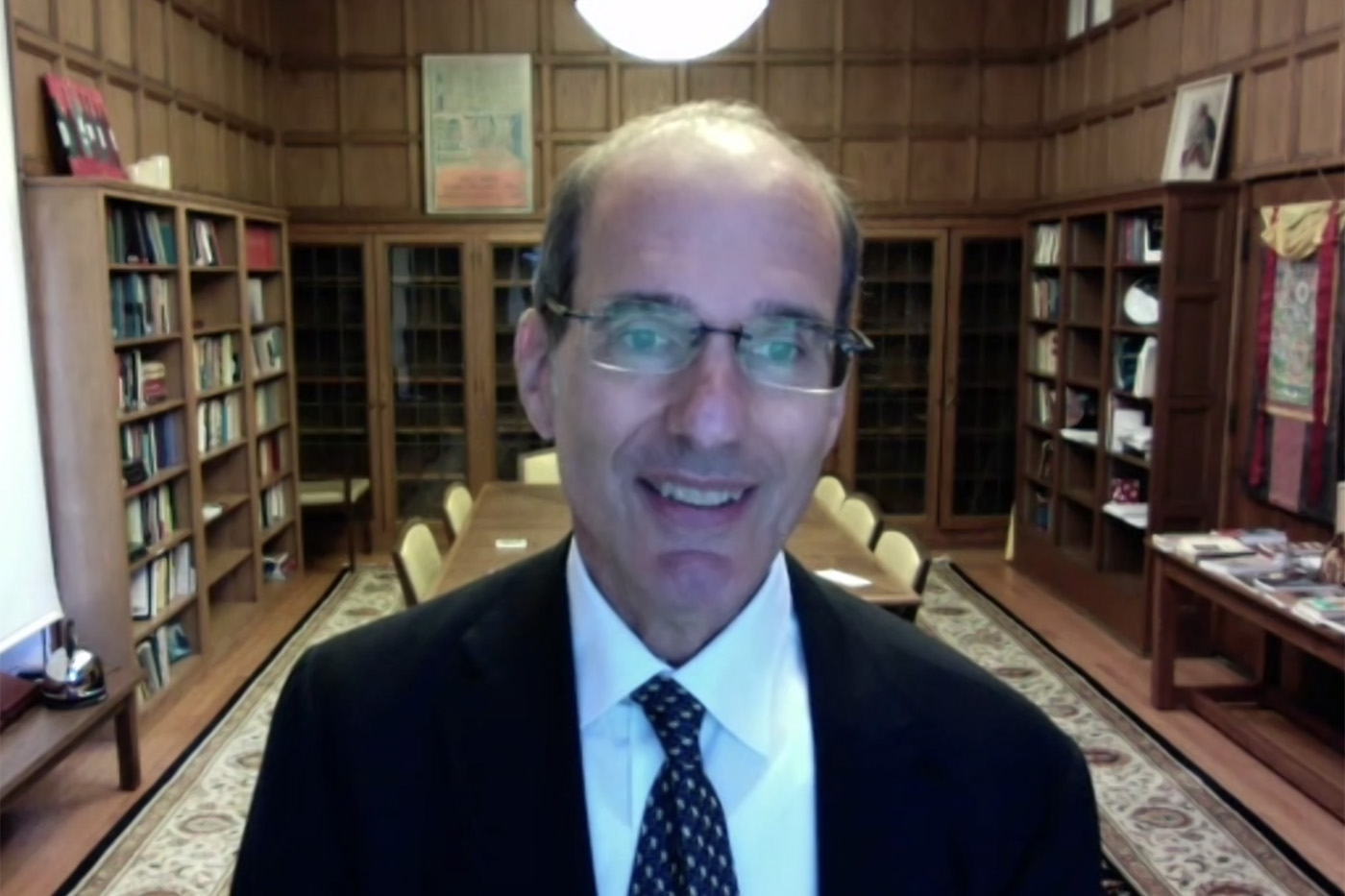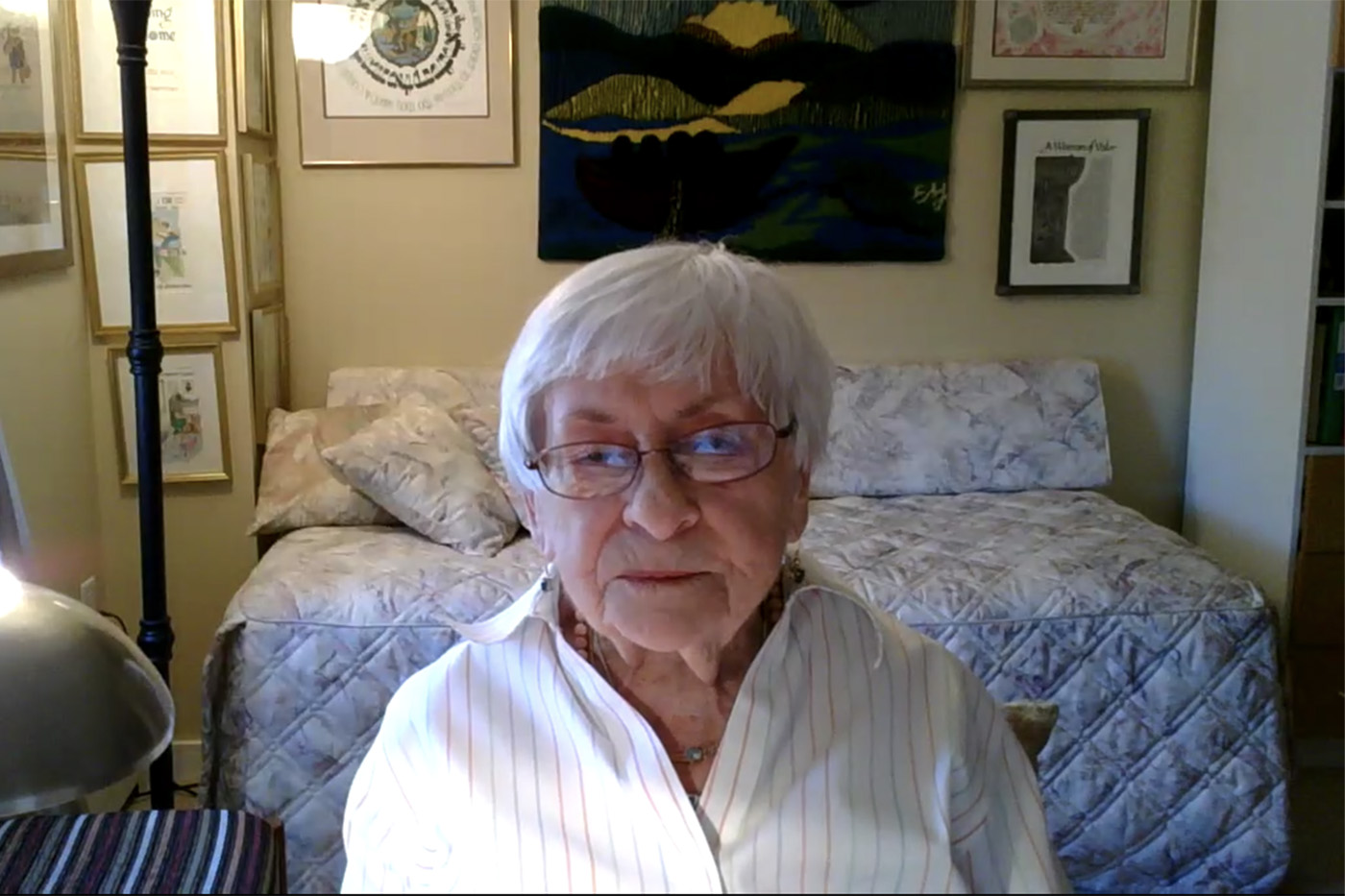Surge of anti-Semitism reflects ingrained pattern, historian says

Anti-Semitic attacks have risen sharply in the last few years as younger generations report dwindling knowledge about the Holocaust — a disturbing trend that has repeated itself throughout history and could lead to more violence in the post-pandemic world, according to historian David Nirenberg.
Nirenberg, the Deborah R. and Edgar D. Jannotta distinguished service professor of social thought at the University of Chicago, spoke Wednesday night as part of Northeastern’s Holocaust and Genocide Awareness Week, noting that anti-Judaism has been ingrained in cultures across the globe since Christians and Muslims originally defined their new religions by comparing themselves to Judaism. The potential for future atrocities grows when society fails to connect present-day anti-Semitism to longstanding prejudices that have reoccurred throughout history, said Nirenberg.

The 28th Annual Robert Salomon Morton Lecture given by David Nirenberg, dean of the Divinity School at the University of Chicago. Screenshot by Northeastern University
“Consider the many people today who see much anti-Jewish violence or sentiment in the present as in no way due to the anti-Semitism of old, that rather it’s due only to the actions of Israel,” said Nirenberg during the April 7 event.
“For the most extreme of these critics, attention to the history of anti-Semitism is irrelevant to the present. It’s a ruse to excuse or distract from the crimes of Israel in the here and now,” Nirenberg said.
Connecting Christian scripture with recent anti-Semitic violence, Nirenberg mentioned a famous phrase in the Gospel of John that suggests Jews “belong to their father the devil,” Nirenberg said. Pittsburgh Synagogue shooter Robert Bowers, who killed 11 members of the Tree of Life Synagogue in 2018, nodded to that passage in his social media profile when he wrote, “jews are the children of satan.”

Holocaust survivor Esther Adler, 97, spoke Thursday afternoon about her escape. Screenshot by Northeastern University
Violent attacks against Jews have increased since the Pittsburgh shooting, surging to an all-time high in 2019 when the Anti-Defamation League reported the highest number of anti-Semitic incidents since tracking began in 1979. The attacks moved online during the COVID-19 pandemic, and recently Holocaust survivors began a social media campaign to call out the hate speech and remind the public that hate speech started the Nazi’s murderous campaign.
Nirenberg’s lecture was part of Northeastern’s Holocaust and Genocide Awareness Week, an annual series dedicated to discussing the Holocaust’s events and exploring ongoing issues arising from the targeted campaign of extermination against Jews and other groups. The events were hosted by Simon Rabinovitch, an associate professor who teaches Jewish, European, Russian and legal history at Northeastern.
Holocaust survivor Esther Adler, 97, spoke Thursday afternoon about her escape to Palestine as Nazi power rose in Germany. Adler, who was Polish and Jewish, separated from her family as a teenager to flee the growing power of Hitler, whose voice blared out of speakers hung on many corners in her city.
“He had a terrible voice. It scared me every time I heard him,” said Adler as she recounted her story of survival. The event April 8 occurred on Yom Hashoah, or Holocaust Memorial Day.
Adler said she has always struggled with the idea of calling herself a Holocaust survivor because she left the country and avoided the forced labor and concentration camps where so many suffered.
Adler read a poem she wrote condemning the inaction and silence of those across the globe as the Nazis continued to imprison and kill Jews.
“As an 18-year-old I wrote these words, and you can see that while I thought for many many years that maybe I’m not entitled to be called a survivor, I suppose I am entitled to it,” said Adler.
For media inquiries, please contact media@northeastern.edu.





